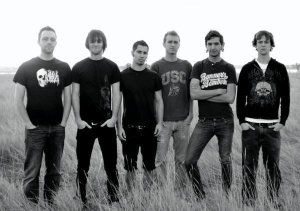Published in NextNC, July 2010
Living in a place where the music credibility is anchored by jazz-infused festivals and predominantly countrified Stampede concerts, it may seem as if other genres within the city limits are nonexistent. However, bubbling underneath the somewhat unvarying surface of the music landscape is a small but growing sector of hip-hop artists hustling to make it onto the local radar.
With just a handful of regional rappers, emcees and DJs seriously pursuing music, it doesn’t come as a surprise that this particular group is the most underground of them all. But in an era when hip-hop culture is so prevalent and unavoidably influential, it is surprising that this university city has taken such a long time to support this genre of music.
“The hip-hop scene in Greeley is pretty small because there are very few people who do what we try to do; it’s kind of a culture that really hasn’t adapted in Greeley,” says emcee Brady Reynolds, aka B-Natural, of Pursuit. “A lot of people aren’t even aware that there are hip-hop acts around here, which is why the few people who are involved are trying to build more of a scene and get more exposure.”
Pursuit, along with seven other northern Colorado hip-hop acts, will get a much-appreciated boost in exposure when they perform Saturday, July 17 at the 9th Street Plaza for the inaugural Downtown Greeley Live — an outdoor concert that is billed as “Greeley’s only hip-hop music festival.” Presented by The Crew Presents in association with Atlas Church and Nu Alpha Kappa, the event is free, but donations are being accepted to benefit Nu Alpha Kappa’s annual children’s carnival NAKland.
“From what I know, there haven’t been any big hip-hop concerts in the city … Something like this has never been attempted.” says Ely Corliss, founder of the music promotion company The Crew Presents. “I just hope that the festival gives the hip-hop scene a foothold in the community. I think there’s definitely a niche for hip-hop here, but it’s just matter of letting people know about it.”
Since The Crew Presents’ inception, Corliss had mainly promoted concerts of the rock variety — anything ranging from metal to acoustic to electro. But it wasn’t until this year that he had really begun booking local hip-hop acts for shows at A.F. Ray’s — the first of which being a January concert headlined by Colorado-based artist Black Prez. Corliss says that the show’s success demonstrated there was a void in the music scene that had never been addressed; so in an attempt to keep up with the demand, he began promoting musicians within the local hip-hop realm.
“As far as Greeley goes, hip-hop is definitely the lowest of the low-key. But it’s becoming more noticed, mainly thanks to Ely of The Crew Presents. Without him, there probably wouldn’t be any hip-hop shows in Greeley,” says Rob Fischer, who goes by the stage name Rhyme Progression. “You can definitely see that it’s growing; but for it to explode, there has to be a lot more publicity for everyone, and everyone has got to work together, too.”
Fischer, a lifelong Greeley resident who has been making music for the three years, is now working on his next album “Rhyme and Revolutionaries,” in which he delivers a message that is echoed by many of his contemporaries: Support local music. As he puts it, people in the community need to “open their eyes” and realize that not all outputs within the genre deal with issues of excess, drugs and violence — something he and many other local musicians are opposed to.
“Unfortunately, a lot of people view hip-hop as guns and drugs and scandalous women, when in fact there is a whole other side to it that people really don’t hear,” Reynolds says. “Hopefully this festival will allow people to see that there’s more to hip-hop. And hopefully they’ll start to show more support for the scene and allow it to really take off. We’re at the bottom right now, so the only way to go is up.”


